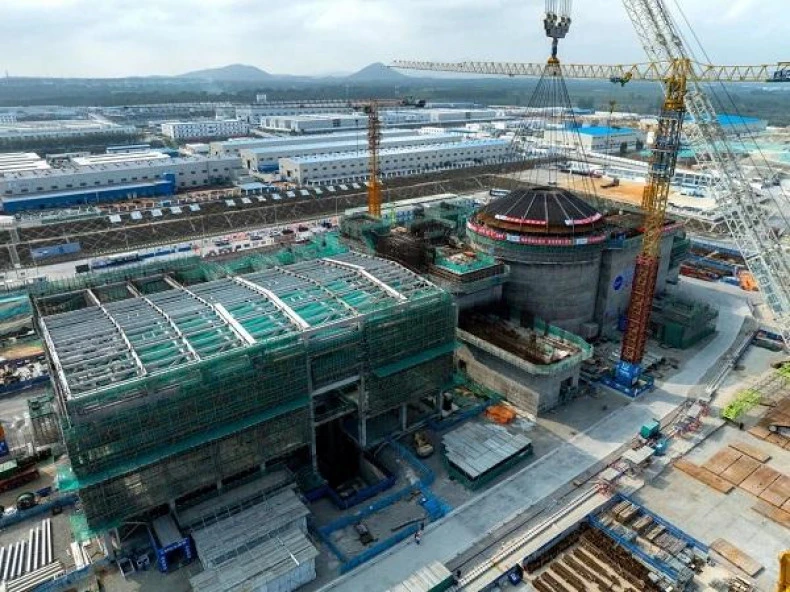
The ongoing development of a small modular reactor within a new power generation facility in Hainan, China. (Photo: bangkokpost.com)
The move is made as observers voice concerns over a decline in domestic gas supply and uncertainty surrounding Thai-Cambodian talks on joint petroleum production in the overlapping claims area (OCA).
Thailand uses natural gas as a major fuel for power generation but the supply of natural gas is decreasing. As the result, the country needs to find new fuels while it is also committed to using more clean energy, as stated in its 2024 power development plan.
Secretary-General of the ERC Poonpat Leesombatpiboon said that the ERC expects to sign an MoU with the Office for Atoms for Peace to jointly study regulations needed for the country to push ahead with the nuclear project.
According to the International Atomic Energy Agency (IAEA), a small modular reactor (SMR) is a form of nuclear power technology with a capacity of up to 300 megawatts per unit, about one-third of the generating capacity of larger, traditional nuclear power reactors,
Under the 2024 power development plan, which will be enforced from 2024 to 2037, two SMRs, each with a capacity of 300MW, will be developed and commence operations towards the end of the plan, an official who requested anonymity was quoted as saying earlier.
SMRs are expected to be developed and operated by the Electricity Generating Authority of Thailand (EGAT).
Speaking during a visit to Hainan in China to gather first-hand information at a 125-MW SMR project based on the island, EGAT governor Thapparat Theppitak said he believes SMRs will be a "game changer" in the global power industry.
The development cost of a SMR is currently 2-3 times more expensive than combined-cycle power plants, but the costs would tend to get cheaper in the future, he said, adding combined-cycle power plants use both gas and steam turbines to produce electricity.
Thapparat said that SMR has a service life of 60 years, compared with a gas or coal-fired power plant which can supply electricity for a period of only 25 years./.
VNA
Source: https://en.vietnamplus.vn/thailand-prepares-for-nuclear-energy-post304101.vnp
 Southeast Asia’s digital economy to top 300 billion USD by end 2025
Southeast Asia’s digital economy to top 300 billion USD by end 2025



